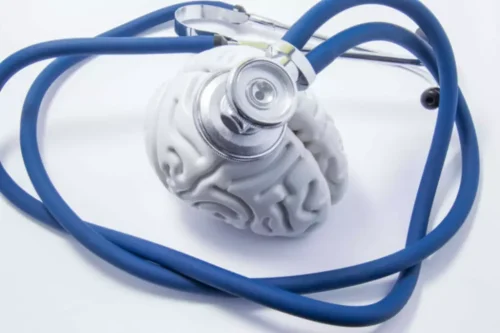Alcohol and Memory Loss: Connection, Research, and Treatment

Also, improving the patient’s diet can help; however, diet does not substitute for alcohol abstinence in preventing alcohol-related dementia from worsening. Wernickes encephalopathy is the acute stage resulting from thiamine deficiency. If it is not adequately treated, can alcohol cause dementia it may lead to Korsakoff syndrome (or Korsakoff psychosis), which involves significant impairments of memory as well as delirium and hallucinations.

Effects on the Brain
After the first part of treatment, a person with alcohol-related ‘dementia’ will need support from different kinds of services. In order to make a diagnosis of alcohol-related ‘dementia’, a doctor may ask the person to do a paper-based test to check for problems with memory and thinking. Alcohol-related ‘dementia’ can also cause problems with a person’s mood, such as apathy, depression or irritability. These can make it even harder for the person to stop drinking – and make it difficult for people close to them to help. A person with alcohol-related ‘dementia’ may also have problems with their memory. They might not be able to understand new information – for example, they may quickly forget the details of a conversation.

Epidemiological Findings Concerning Alcohol Consumption and Risk of Dementia
Alcoholic dementia is gradually progressive, and it worsens over time. Medical treatment and getting treated for alcohol addiction may help prevent the condition from getting worse. A small number of studies seem to suggest that drinking moderate amounts of alcohol reduces dementia risk compared to not drinking at all. Several high-profile reviews looked at the research into alcohol and dementia risk. They all found that people who drank heavily or engaged in binge drinking were more likely to develop dementia than those who drank only moderate amounts. See a health care professional if you or a loved one has memory problems or other dementia symptoms.
Diagnosis

Wernicke-Korsakoff syndrome occurs due to a deficiency in vitamin B1 or thiamine. This is a common deficiency in people who misuse alcohol, but it can also occur due to other disorders or conditions. Coping with alcoholic dementia can be difficult for a person who is experiencing it, as well as for their loved ones. If you stop drinking, it’s possible to at least partially reverse the effects of alcohol-related dementia.
Theories suggest that for certain people drinking has a different and stronger impact that can lead to alcohol use disorder. While there is still some debate on whether alcohol can cause Alzheimer’s disease,there is a clear consensusthat those who already have Alzheimer’s disease or dementia should not drink alcohol. Alcohol causes cognitive impairment that can greatly increase the risk of injury with these conditions. Someone who is drinking may also forget how much alcohol they have consumed, increasing the risk of alcohol poisoning. Alcohol-related dementia is a broad termthat refers tobrain damage caused by alcohol.
- It can be beneficial to work with a social worker who is experienced in managing alcoholic dementia and who can guide you and provide you with advice, support, and resources as you cope with this condition.
- Those who are suffering from AUD should seek immediate attention.
- Alcohol has a direct effect on brain cells, resulting in poor judgment, difficulty making decisions, and lack of insight.
- Experts recommend that screeners check anyone with memory loss for alcohol use.

Both terms refer to a severe type of alcohol-related brain damage (ARBD) and are interchangeable. Table 1 presents details regarding the literature searches conducted in preparation for this review. Similarly, whereas the terms “Alzheimer’s” and “alcoholism” yielded 318 results, “Alzheimer’s” and “alcohol use disorder (AUD)” returned only 40 citations.
- Alcohol-related ‘dementia’ can also cause problems with a person’s mood, such as apathy, depression or irritability.
- However, women who have ARBD tend to get it at a younger age than men, and after fewer years of alcohol misuse.
- Sometimes, nutritional supplementation can help prevent the progression of this type of dementia.
But charity Dementia UK told people to stay alert to some more specific symptoms that might occur in the days that follow the clocks changing on October 27. Moderate alcohol consumption is normally defined as 1-14 units of alcohol per week for women and 1-21 units a week for men. If you regularly drink much more than this, you are increasing your risk of damage to your brain and other organs, and so increasing your risk of dementia. Diagnosing alcoholic dementia involves a comprehensive assessment, including medical history, physical examinations, cognitive tests, and brain imaging to rule out other causes of dementia.
These situations can range from small, such as where a person put their keys, to large, such as forgetting what happened in night. According to Duke University, the inability to remember anything from a night out usually occurs after a person has had five or more drinks. Some people experience what doctors call a blackout when they drink too much alcohol and don’t remember key details. A 2013 study found that an estimated 78 percent of individuals diagnosed with AUD experience changes to the brain.